If you’re participating in a club or sport at Trinity this year, you’ve probably noticed changes in the way important information is conveyed. In the past, messages came through channels like Remind, GroupMe, and even iMessage. However, this past April, Senate Bill 181 was passed by the state legislature and signed into law by Kentucky Gov. Andy Beshear. This piece of legislation implemented various new safety measures for teacher-student correspondence, but perhaps most crucially, mandated a traceable form of communication for all messages sent in either direction.
The first question you might be asking is, “Well, why does this affect me?” For those well-versed in civics, you know that Kentucky education laws and policies do not extend to private schools. However, after the passage of this bill into law, the Archdiocese of Louisville implemented the provisions for the schools under its jurisdiction as well. In that, Trinity is included.
Mr. Chris Kircher, Trinity’s new director of admissions and enrollment, has been responsible for making sure the instruction received from the Archdiocese was implemented correctly. “It was basically wanting us to make sure communication is traceable… trackable, as well.” While Kircher states the policy helps ensure students’ safety, he also clarified that its role in protecting teachers and Trinity staff is invaluable. “It’s more thinking about Trinity collectively and protecting those that are here. Obviously, our students, but then also the faculty, staff, volunteers and coaches that we have that are working and communicating with students.”
While the new law does specifically require traceable communication, it does not elaborate on how that requirement is fulfilled. For Trinity, Apptegy was the best choice. “We looked at a lot of different platforms. We engaged with those platforms, engaged with internal and external stakeholders… They [Apptegy] know who we were as a school and our mission and what was important to us. Also, they’re familiar with our systems and what we needed to do from that standpoint.” Since the onset of the new school year, Apptegy, email and Rockspace have been the only forms of communication permitted for communication between Trinity students and faculty.
However, there have been some growing pains in the initial adjustment to this new platform. Primarily, teachers and students alike face challenges in figuring out the best ways to get their communication out at a reasonable speed, as users have run into problems receiving notifications from Apptegy. Mrs. Meredith Lane, who teaches Trinity’s yearbook class, acknowledged the difficulties it has introduced. “My yearbook class relies on constant communication… Before, I could send out a message with a photo request and get almost immediate feedback from students. Now, we can still send out a message, but the ability to see the message and respond is hindered.” Meanwhile, Trinity senior cross country runner Drew Koon also acknowledged the difficulties with communication. “It’s just been hard to get used to. We’ve been so reliant on Remind in the past, and now communication comes mainly through email, which not everyone is always quick to check.”
Alternatively, though, some Trinity teachers are happy with the protection it gives them. Mr. Nolan Lawson, who coaches both Trinity’s Future Problem Solvers team and Trinity’s Esports team, agreed that the cons are worth addressing. “Apptegy seems to be a bit unwieldy… My understanding is that when it notifies students on their phone, it does not show the message in the notification, as Remind and other programs would. Instead, it says vaguely that students have a message from the coach or teacher. It becomes more difficult than using Rockspace groups or just basic Outlook.” However, Lawson argued that the positives far outweigh the negatives. “Everything is simplified. Rather than a club or team monitoring messages or communication on a separate software, everything is under the Trinity umbrella. Suddenly, there is so much more accountability for students, and I feel supported in monitoring student communication. It ensures professionalism.”
When it was passed, the bill was seen as a huge victory, protecting students and teachers all around the Commonwealth and receiving support from many parents worried about their children. Not only was it passed in a bipartisan manner, but according to Kentucky Sen. Julie Raque Adams, very few complaints or concerns were raised. “I never heard from one teachers’ union on this bill. I never heard from a school district that said they had a problem with the bill.”
However, the new controversy regarding the bill is not limited to inside Trinity’s walls, and questions were raised over the bill limiting teachers’ ability to connect with students. Raque Adams, who represents areas of East Louisville, agreed there is room to grow. “I felt like it was too broadly written… There has to be a way for teachers to be able to engage.” However, Raque Adams clarified that those conversations are happening, and encouraged readers not to be surprised if Senate Bill 181 is amended when the 2026 Kentucky legislative session begins in January. “More dialogue, and learning what the best ways are to be able to communicate with kids and parents, will result in better legislation, and I’m excited that those conversations are happening.”
To help alleviate the growing pains at Trinity, Lawson gave some advice for teachers and students running into issues with the new platform or who are not able to use what they had previously become accustomed to. “I would recommend others use Rockspace Groups for clubs if you do not like Apptegy.” Meanwhile, Koon posed that using email for quick communication will continue to grow in popularity, and acknowledged it was his preferred method outside of Remind. “Sometimes, we receive the messages a little slow, but email is consistent and is working fairly well for now. We just need our guys to get used to checking for messages without a notification, and hopefully these problems will go away.”
Until more clarification is given from the state and Apptegy is further developed, though, Trinity teachers and students alike are pushing forward. Lane clarified that she hopes this period of adjustment will soon be a thing of the past. “It [Senate Bill 181] certainly has added a step, but one thing teachers are great at is adapting. We are learning every day and figuring out a way to stay in contact with students while still adhering to Senate Bill 181.” Lawson agreed that time will continue to fix these communication issues, but that protecting students and teachers is a more important priority for the safety of Trinity High School. “We are finding alternate approved ways that are effectively the same in terms of communication, and even if we don’t, I believe the trade-off is worth it.”

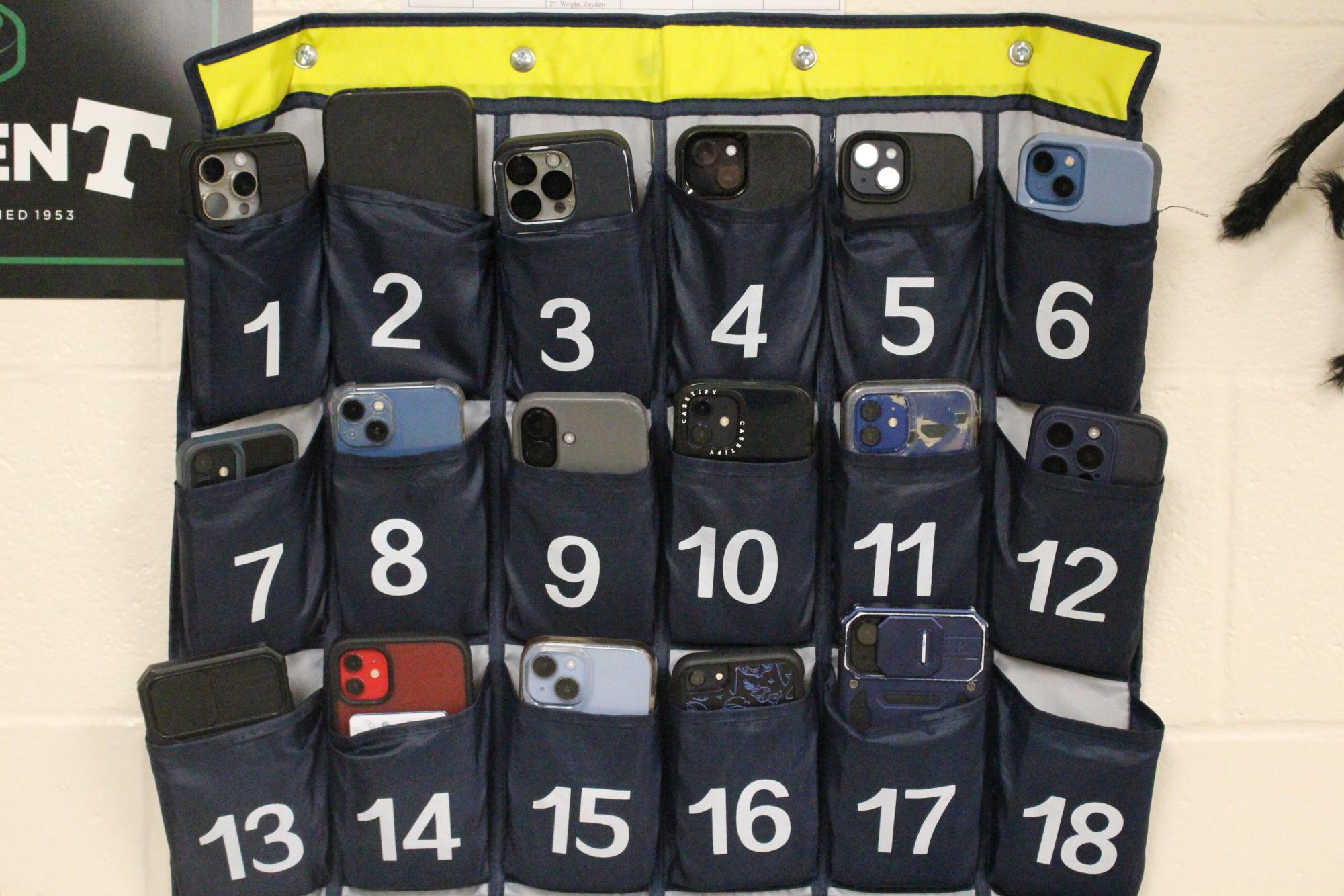


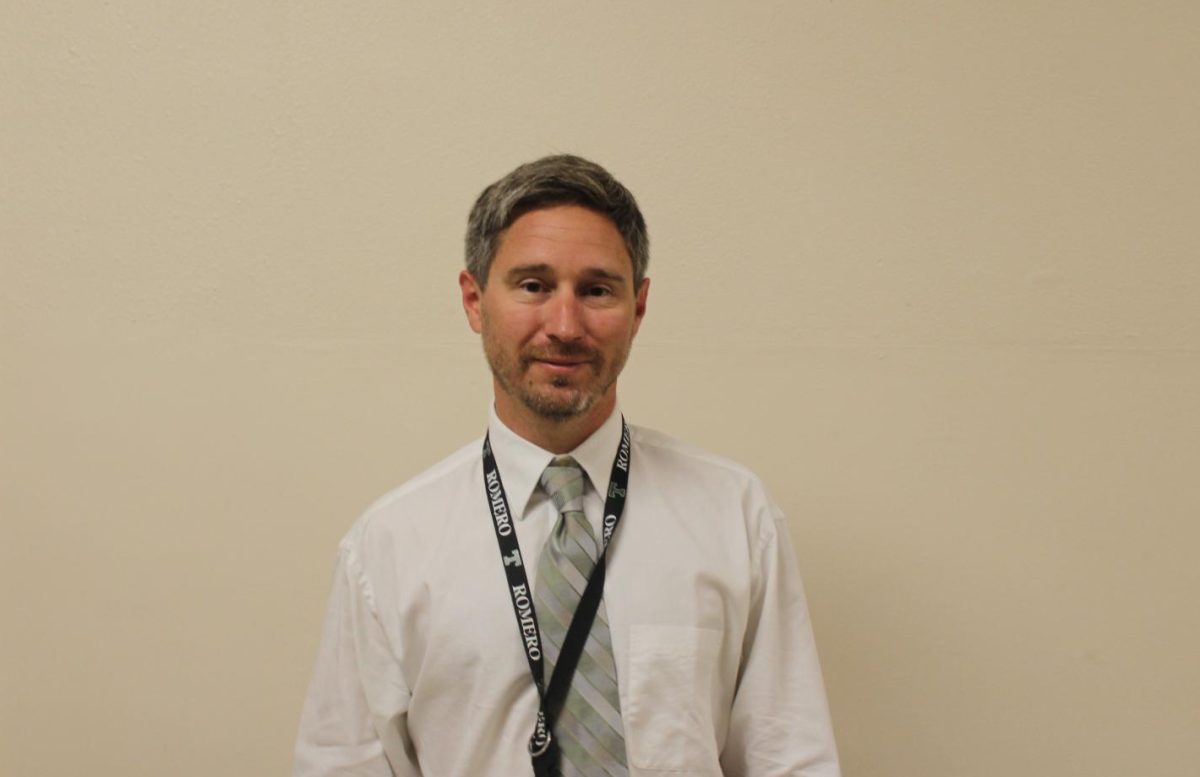
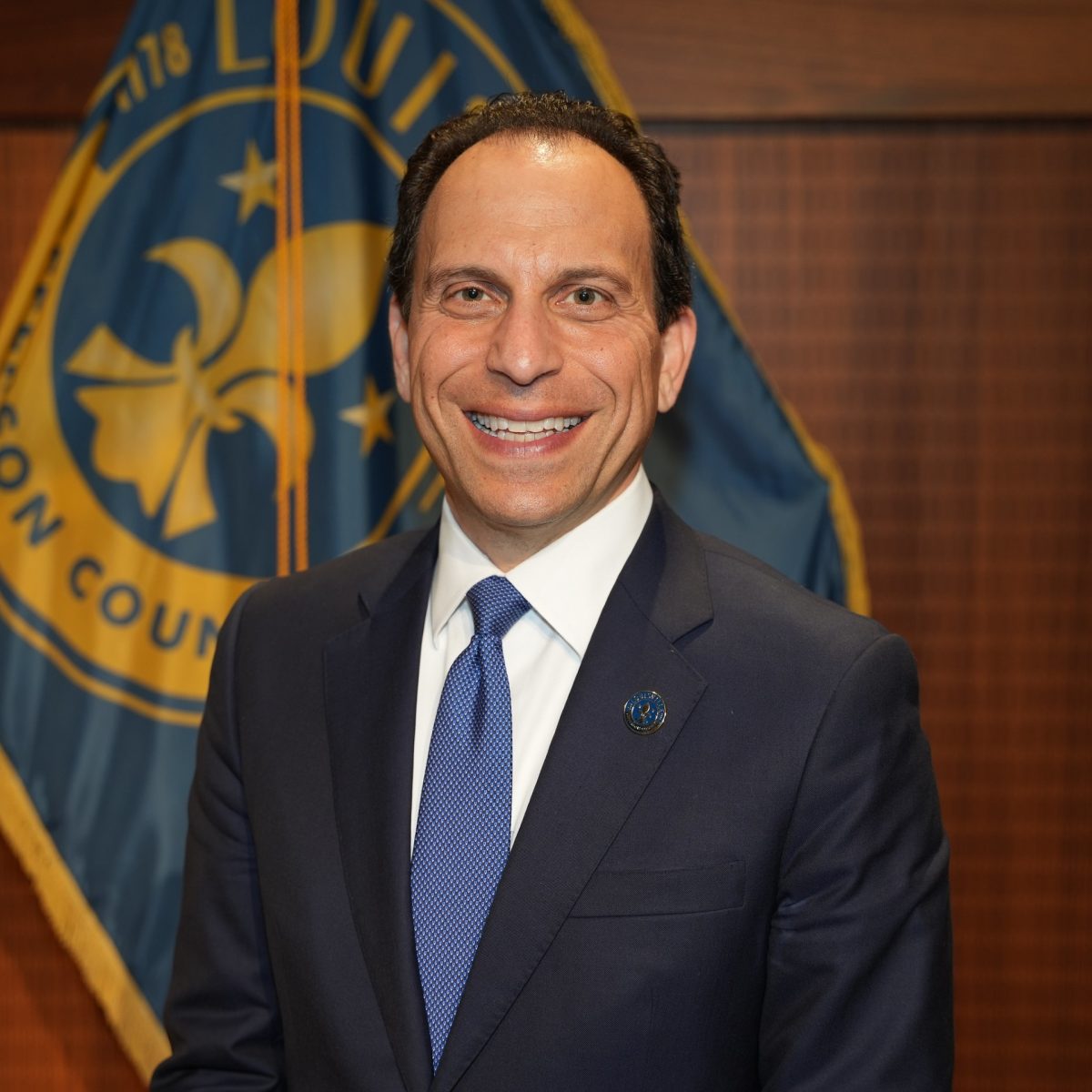
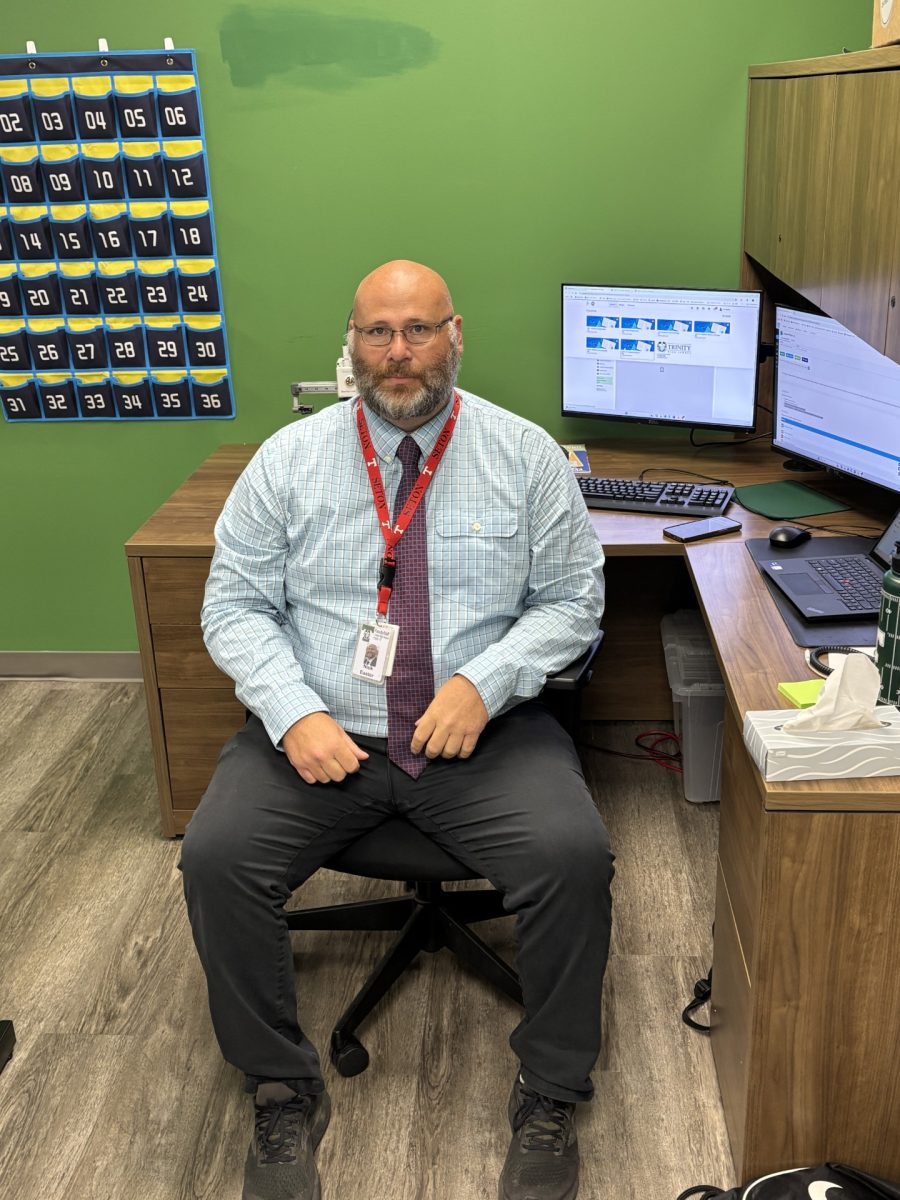
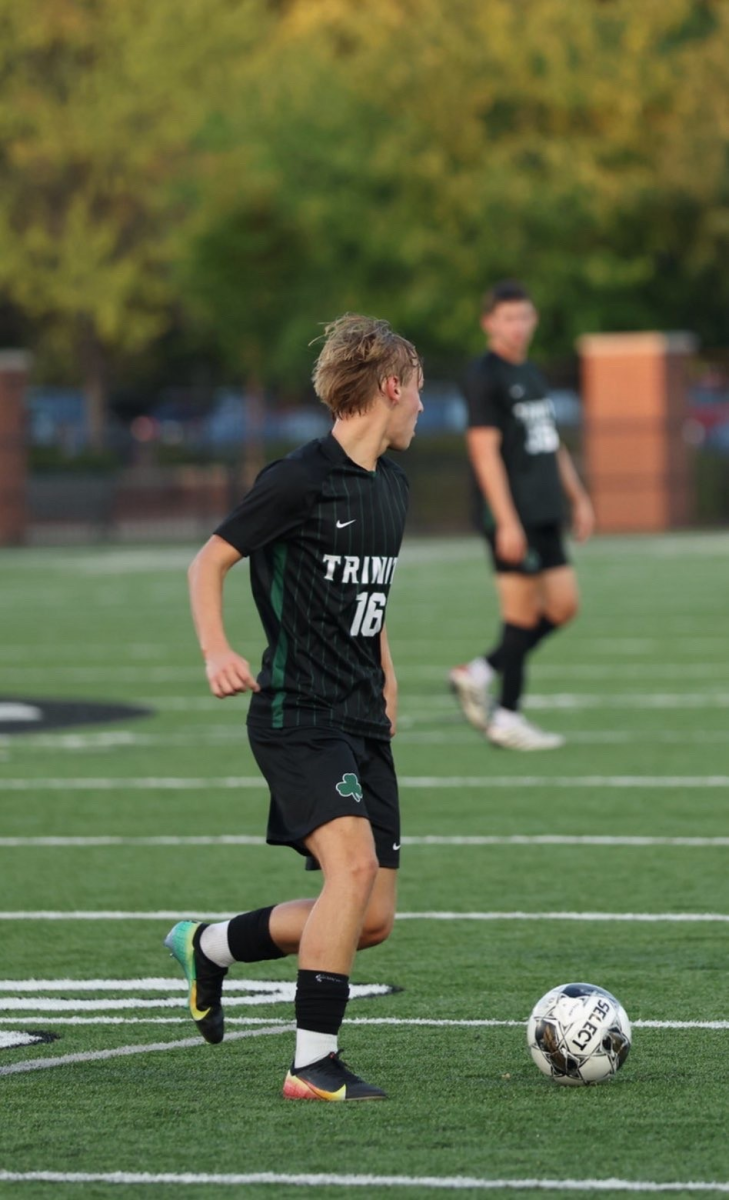






Dan Zoeller • Oct 22, 2025 at 8:02 am
Extremely well done report on a difficult and complex issue.